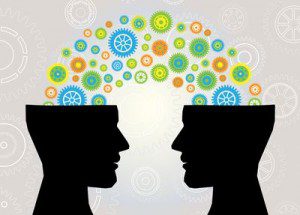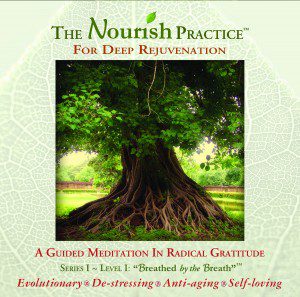By Jack Adam Weber L.Ac., Dipl. C.H.
Contributing Writer for Wake Up World
The stories we have about one another can be dangerous. Many of these stories are generated by emotional triggers, which generate our beliefs, causing us to bias our view and twist information to support our bias. Or, we just conveniently miss what is communicated, or assume we know what is meant by something someone else says or does, when in fact, something completely different has been communicated in plain English (or whatever language we understand best on a given day). What’s worse is that we then act on our beliefs and the emotions generated by them, often doing harm.
We also create beliefs and generate emotions based on our stories. We need good thinking to separate the logistical facts of a situation from our reactions, beliefs, and stories about one another. Without this critical thinking, and without the skills and tools to consciously process our emotions so that our thinking can remain relatively clean and free from constant unconscious emotional bias, we can end up in a tangled mess in which we can’t see or hear what is really going on outside the stories in our head and the reactions in our body.
[pro_ad_display_adzone id=”110028″]
Because our emotional reactions themselves are often based in getting the facts wrong (either deliberately or through innocent misunderstanding), we have to be astute to think well, to inquire with other and ourselves. I discuss this at length in my essay “Re-Thinking Love: Why Our Hearts Must Also Be Minded.” For example, say I believe that my girlfriend doesn’t want to go out to dinner with me (due to whatever stories and past hurts I unwittingly still carry), and I conclude that she is selfish and thereby I treat her poorly, and even justify doing so. Even though she tells me she is just tired, I don’t register this truth and decide that it’s not for this reason. What I have effectively done is risk living in disaccord with reality, acting unfairly to my partner, and adding to the bad story in my head.
This story is also just one example of why “being in your heart” and relying primarily on feelings and “intuition” to determine opinions, beliefs, and actions is to live in disaccord with external reality and to perpetuate relationship suicide. Of course, it’s true that she could not be telling the truth, but to determine this I need to do a little more research and be patient. To be fair, I can’t decide she is lying until I know more. This is also an example of one of the jagged edges of being in relationship that doesn’t get to be solved in a jiffy. Hopefully, we choose partners that can meet our needs for honesty most of the time and that we create the space and trust for this to happen.
True Stories
Stories guide our lives; we all have stories, we all have beliefs. We can’t live without stories. The important thing, therefore, is to be aware of the stories and beliefs we carry, especially our untrue stories. We want to recognize which stories help us ascertain fact and navigate reality effectively. If we miss one of these, we will be inaccurate and out of touch with reality, which in one way or another, sooner or later, ends up doing harm. Our beliefs must match the reality of our interpersonal dynamics; otherwise, we are living in our dishonest heads and begin the cascade of disharmony and less than loving relating.
Facts, or “truth,” fall into two categories. One is personal-subjective and the other is external-objective. When we make statements about the world, or something outside the realm of our personal-subjective life, we need to be sure to get the facts straight. Relying on our intuition and feelings when we can ask questions, think clearly, and research or otherwise discover the answers is often a justification for acting on our bias, which is heavily influenced by our emotional wounds. It’s lazy, dishonest relating, and a lesser recognized form of spiritual bypassing. For example, if I self-righteously assume and defend my belief that you didn’t want to go to dinner with me because you are selfish or don’t care for me as much as you used to, then I have a) failed to hear your reason and truth, b) believed my own bias informed by my emotions being triggered, and c) prevented myself from connecting with you and more deeply with myself, which acknowledging your truth and my own projected bias serve to ignore.
Science is a valuable tool that more often than not helps us get the facts straight (or at least straighter than our intuition and feelings) about the external-objective world. For interpersonal relationships, when we don’t know something we can employ simple science and ask for clarification. We can also engage clear, logical conversations to ascertain what’s true for the person with whom we are relating.
Fact-finding helps us regulate our stories and our emotions, thus letting us be kinder. Kindness usually shows up in harmony with reality. It can be enhanced when we engage in heartfelt, emotional discussions, when we share our feelings, empathize, and embody compassion. This is because when we soften up some, we are more likely to be able to hear the truth that our emotional triggers and defensive ego usually defend against. However, we can’t have these wonderful heartfelt conversations and get good results if we have the facts wrong.
If I can register that my girlfriend doesn’t want to go out to dinner because she is just tired (and that she really does still care about me!), then I don’t have to defend my hurt. And I get to look at what causes my hurt to begin with. So, during a conflicted or hurt moment, I try to get the facts first, digest them, then engage in a communication of sharing and listening, as a general rule of thumb. Emotional honesty (feeling our real feelings) and intellectual honesty (acknowledging logistical facts and admitting error) do not substitute for one other, but they both enhance the other. For example, knowing the facts helps us keep our emotional reactions in check. And, being emotionally vulnerable (and thereby honest) can help us hear facts we might otherwise not want to acknowledge.
When we feel sensations, experience an emotion, undergo a personal process, register our likes and dislikes, have our preferences and style, these are true in and of themselves. They are subjective. Yet, if they also rely on objective fact, then the e should get the facts straight. For example, if I think you left those beautiful flowers on my desk and I get a warm tingly feeling for you, feel affection for you, become flushed and blush, and have a feeling appreciation, no one can argue that my sensations and feelings are false. They are true in and of themselves. However, if I later discover that indeed you did not leave me the flowers, and that they were intended for someone else, then my feelings for you might fade. Similarly, if I think you stole my watch and I become angry at you, but later find out you did not take it, then I have to revise my upset with you (and apologizing would be nice, too).
Personal-subjective stories almost always involve external reality, to some degree. Say that I like apples. No one can reasonably argue that I don’t like apples; I simply don’t like them and that is my subjective truth. Someone may, however, ask if I have tried Fuji apples. If I have not eaten Fuji apples and I try them and like them (as I do), my assertion about apples can change. It would no longer be entirely true to say “I don’t like apples.”
So, while our personal truths are valid, they may also be wrong if we can register and learn from new experience without letting our stories dictate our ignoring of genuine novelty. We have to think critically about our beliefs and stories about these preferences so that we can be open to changing our dispositions. In the same way that I came to discover a love of apples, you or I might also come to discover we love qualities in one another and in the world that we blocked out by generalizing and dogmatizing previous, limited experiences into stories we re-run in our head and act out on others. This is the human sickness we all are disgusted by!
In Part II of this series, I will discuss the particularly helpful use of Stories. Until then, think well!
The Nourish Practice
Jack Adam Weber’s “The Nourish Practice” is an easy, guided meditation-Qi Gong practice in radical gratitude and self-love. It is an Earth-based, body-centered practice — at once physiological and mythological — that is deeply relaxing and replenishing, especially for modern-day burn-out syndrome, and requires little physical effort.
The Nourish Practice “resets your nervous system” and fosters a rich inner life.
You can purchase The Nourish Practice as a CD or Digital Download here.
Previous articles by Jack Adam Weber:
- Relationships: The Costs of Staying When We Should Leave
- Emotional Work
- Choosing a Partner – How to Avoid Relationship Suicide
- Re-Thinking Love: Why Our Hearts Must Also Be Minded
- Spirituality – Reality Check
- 11 Crucial Tips for Better Digestive Health
- Shadow Work: Becoming a Sustainable Light Worker (Part 1)
- Oneness in Action: The GMO Eradication Movement
- After the Hurricane: Lessons from the Heart of Nature
- Relationships: How They Can Make Us Happier
- Heartbreak – Loving Ourselves Through Difficult Times
About the author:
 Jack Adam Weber, L.Ac. is a Chinese medicine physician, author, celebrated poet, organic farmer, and activist for body-centered spirituality. His books, artwork, and provocative poems can be found at his websitePoeticHealing.com. He is also the creator of The Nourish Practice, an Earth-based rejuvenation meditation. Weber is available by phone for medical consultations and life-coaching.
Jack Adam Weber, L.Ac. is a Chinese medicine physician, author, celebrated poet, organic farmer, and activist for body-centered spirituality. His books, artwork, and provocative poems can be found at his websitePoeticHealing.com. He is also the creator of The Nourish Practice, an Earth-based rejuvenation meditation. Weber is available by phone for medical consultations and life-coaching.
You can connect with Jack Adam Weber on Facebook or by emailing[email protected].
[pro_ad_display_adzone id=”110027″]








